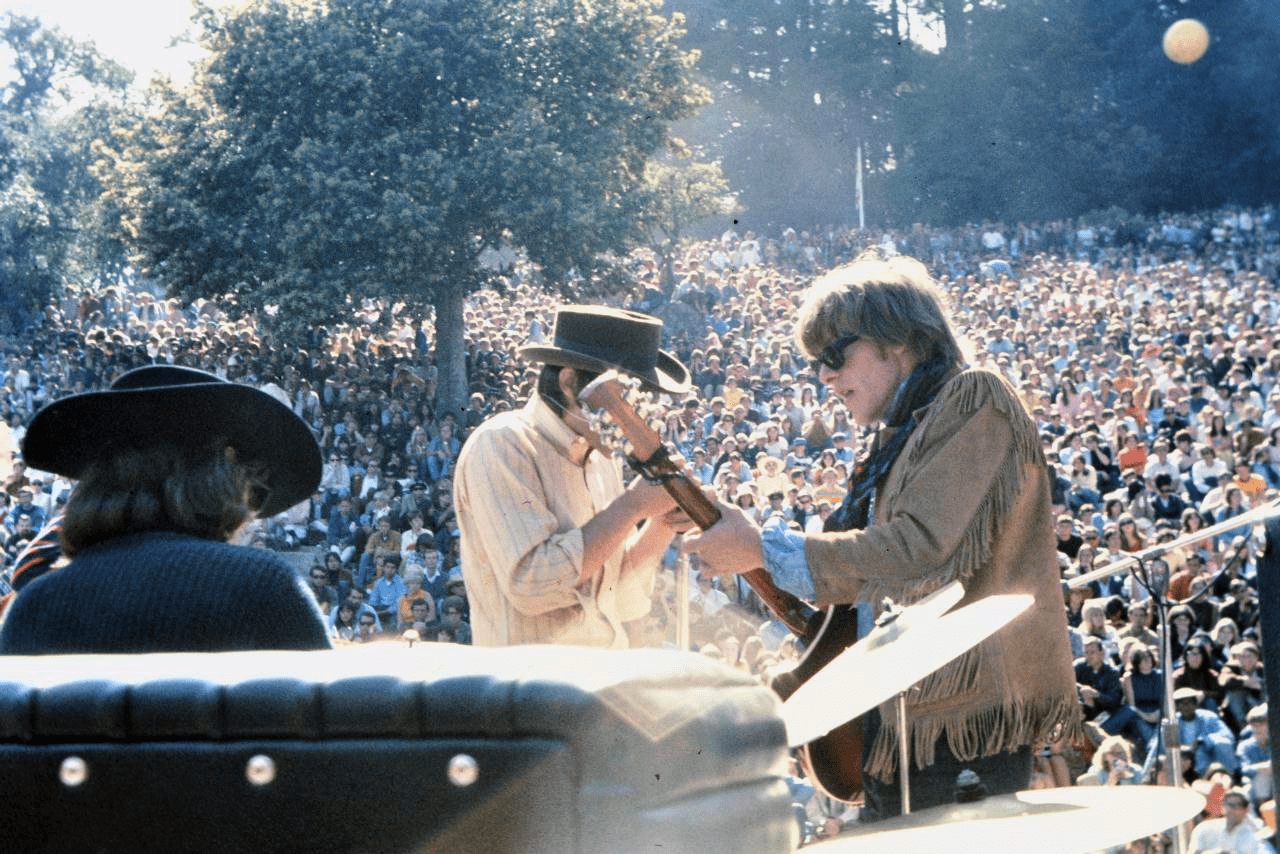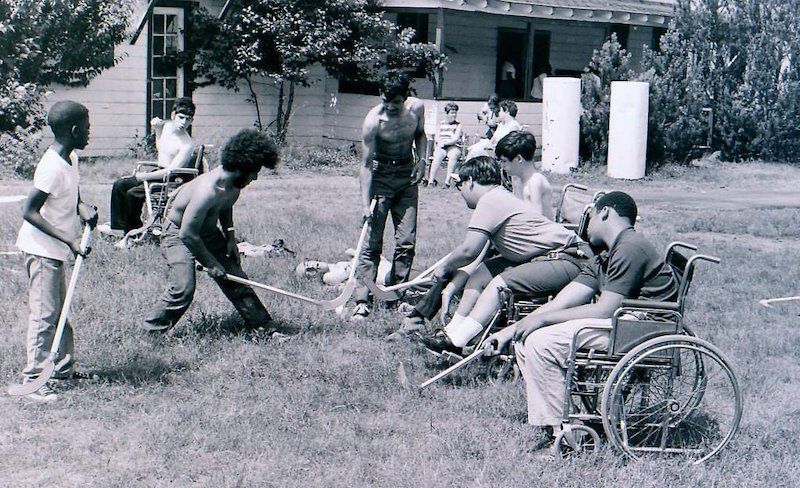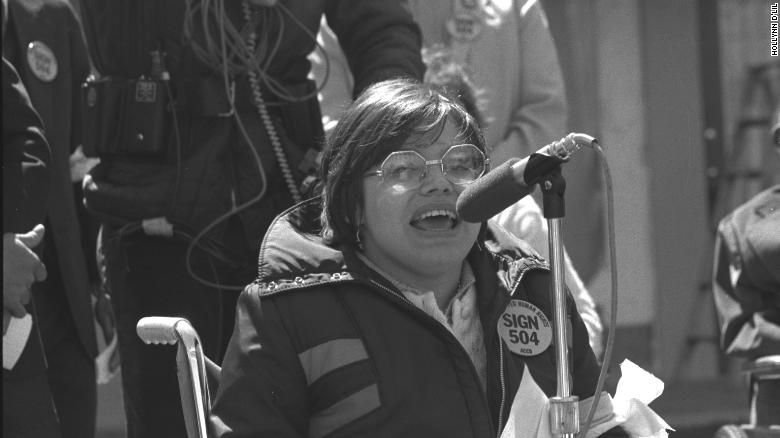Summer of Hope: The Disabled Revolution: From Hippie Pop Culture to the Americans with Disabilities Act
When it comes to hippie pop culture, what comes to your mind? I am reminded of the various hippie characters I see in the Hollywood movies. A man with a naked upper body, with long fluffy hair and a beard, carries a guitar with him. Hippies pursue peace, oppose war, and spurn all materialistic capitalism, emphasizing the freedom of the individual soul and the freedom of life; unfortunately, it is not entirely a sign of positive symbols. On the opposite end, drug addiction and violence are also hidden. In the shadows, and thus hippie culture eventually faded away.
Of course, the spirit and incense of hippie still influence the subsequent social development. However, no one at the time thought that hippies would change the group of people who could not participate in society in this way.

From "Summer of Flowers" to "Summer of Hope"
Larry Alison of Jened Camp in 1951 was a hippie, and the positive spirit of the hippie still remains in him.
"There are a lot of these teens in this camp, and I want them to be teenagers, free from labels and stereotypes."
"I found that the problem is not with these people in need, the problem is with us, so it has to be changed by us."
Larry Alison's values influence his behavior, so he established Jened's camp to realize his values, because everyone is unique and everyone should have a bountiful spirit without any limitations. This seems to be a utopian ideal, but it really happened in this camp, and Jened's camp was able to gather such a group of people.
From the documentary [Summer of Hope - Revolution of Physical and Physical Disability], the author speculates that most of the people who went to the camp were polio, cerebral palsy and mild intellectual disabilities, so there were still volunteer counselors in the camp to help them deal with some daily activities. But just through the screen, you can feel the joy of the physical and mental liberation of this group of people in need.
Life in the camp seems to be all right, like ordinary people, they can move around freely, someone has a guitar and they can sing as a group at any time, they can hold their own games, baseball games, they smoke , some people will meet in secret locations to flirt with each other and develop the first intimacy of their lives.

Nancy has a language barrier. Although she has a clear mind, she cannot effectively coordinate her oral muscles, so she can only make "ah" and "woo" sounds when speaking. In the camp, however, everyone was willing to stop and listen to him. Even when many people don't understand, there are still people in the camp discussion who can help him express it.
Steve: "I think what Nancy is saying is that people actually want to be alone, to think alone, to have a little privacy."
I watched this clip several times, and it was really moving. At that moment, their minds were connected, and the communication was unhindered. It also made me more firmly convinced that "language" is not a necessary condition for communication, but "empathy" is a necessary condition for good communication.
Note: Steve's life is very exciting, interested friends can go and watch this documentary
Values affect behavior, behavior affects values, and values affect behavior
Judith Heumann was a competent parliamentary host during her participation in the camp. She did not rush to give everyone a chance to speak. She believes that everyone's opinions are important and should not be ignored.

"If you don't respect yourself, you don't show trust in yourself, then you don't get respect and live with confidence. Some people always feel that they have to hide themselves and not be discovered by others."
Judy has also become an important role in fighting for the rights of people with disabilities in the future. In the camp, these people speak their own words and live a comfortable life. She wants to take this feeling out of the camp, just like the concept of being a Jened battalion commander. Not from these needy people who were not born assigned to live freely in Camp Jened. So she's taking that feeling out of the camp and putting it into action to push the bill in the future.
"When you are respected, your speech becomes weighty"
discrimination
Recently, due to the epidemic, the word "discrimination" has become a common word in the news at home and abroad. After watching this documentary, I also re-examined the word "discrimination". Let's look at the following two scenarios:
scene one
Denise Jacobson: "There are also pyramids in the disabled group. Cerebral palsy is at the bottom, and polio is at the top because they look more like normal people." Her husband Neil Jacobson: "I My mother said to me, "I can understand that you want to find a disabled person to marry, but why don't you find a polio?"
scene two
Larry Alison: "I'm going to dig a few holes because these kids are clumsy and I thought it would be funny to trip over them." The crowd laughed happily together.
What is discrimination? I once saw a saying on the Internet that "as long as the other party is unhappy, it is discrimination." I don't agree, because this is not objective, and sometimes it may be a way of escaping human nature . If it is just that the other party "feels" offended Even if there is discrimination, there will inevitably be many strange situations in society. For example: "Children under 120 cm in height feel offended that they are not allowed to ride on the roller coaster, and they think that the amusement park discriminates against children", "The patient feels offended by prescribing too many medicines after being diagnosed by the doctor, and feels that the doctor discriminates against the patient. "
In the two scenes in the above documentary, I think two factors should be considered to determine whether discrimination is discriminatory:
1. Stereotypes : Find labels through the characteristics of the target, use stereotypes to divide others, and mistakenly believe that the target acts like the imagined label. For example: yellow skin should be good at math, women are not good at sports, people with disabilities should not go to the bakery to buy bread by themselves.
2. The relationship between the two parties : It usually occurs between close relatives and friends. The two parties have reached a state of mutual understanding, and they believe that the relationship is equal, so there will be no discrimination. Just like the second scene above, in the heart of the battalion commander, he believes that these children are all equals like himself.
"You can pass a bill, but it has to be until the attitude of the society changes, otherwise the change in the law doesn't make sense at all."
After a long and vigorous campaign, on July 26, 1990, former U.S. President George HW Bush signed the Americans with Disabilities Act, declaring that "with today's landmark signing of the Americans with Disabilities Act" , every child with disabilities can now enter a bright new era of equality, independence and freedom through once closed doors."
The bill succeeded, but is it over? Of course not, because the group attitudes of society are not consistent, the law is only the bottom line, and there are still many shadows in areas outside the law. This is just the beginning.
Technology, education and healthcare create a platform for "participation" and "experience" to build an inclusive society
"Summer of Hope" made me seem to see a process of going to a communion society. The group of people who participated in the Jened camp experienced a free and comfortable life, and they were able to generate their own belief in "possible" , so they were motivated to work hard. push bill.
So I was thinking, what if our roles were reversed today? If the group with the more advantage in the society, through participation and experience , to understand people and things that we can't imagine, will it evolve into a common group of "we have the possibility" , and then create a harmonious environment. It may have been difficult in the previous era, but I believe that with the development of modern technology and the accumulation of academics, this day can be expected!
Finally, I recommend you to watch "Summer of Hope - The Disabled Revolution", which is also a small step towards an inclusive society!
The above are all personal opinions to share, if you have any ideas, you can reply to the discussion and exchange after the article! Corrections are welcome if the information is wrong. Hope to get your feedback!
relevant information:
What was left of the hippie cultural revolution fifty years ago?
Like my work? Don't forget to support and clap, let me know that you are with me on the road of creation. Keep this enthusiasm together!

- Author
- More